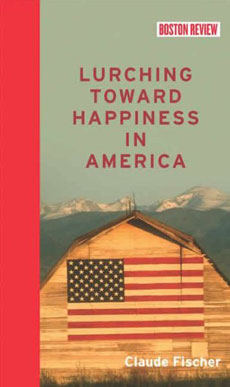The promise of happiness still looms large in the consciousness of many Americans. But the sparkling and shiny suburban dream of the 1950s has been replaced by a far shabbier and dimmer dream. Claude S. Fischer, a Professor of Sociology at the University of California, Berkeley takes on the task of assessing the dream of happiness during these less than dazzling days.
He begins with the cries of those who are convinced that the Internet is ruining the country and the character of Americans. Another band of critics argue that loneliness is stealing the yearning for better days from young and old alike. Then there is the ebbing of the ideal of gender equality and the lack of leisure time, two rather lame reasons given for America's troubles. Perhaps the most important of all is the widening gap between the rich and the poor.
Fischer doesn't flinch from a close encounter with dismay when he writes: "The United States is clearly underachieving in its commitment to provide its citizens with life, liberty, and the opportunity to pursue happiness. We are an exceptionally unequal society, and in many ways that inequality is widening." One thing remains very clear, the American Dream is messed up and bound to get messier as time goes on.
